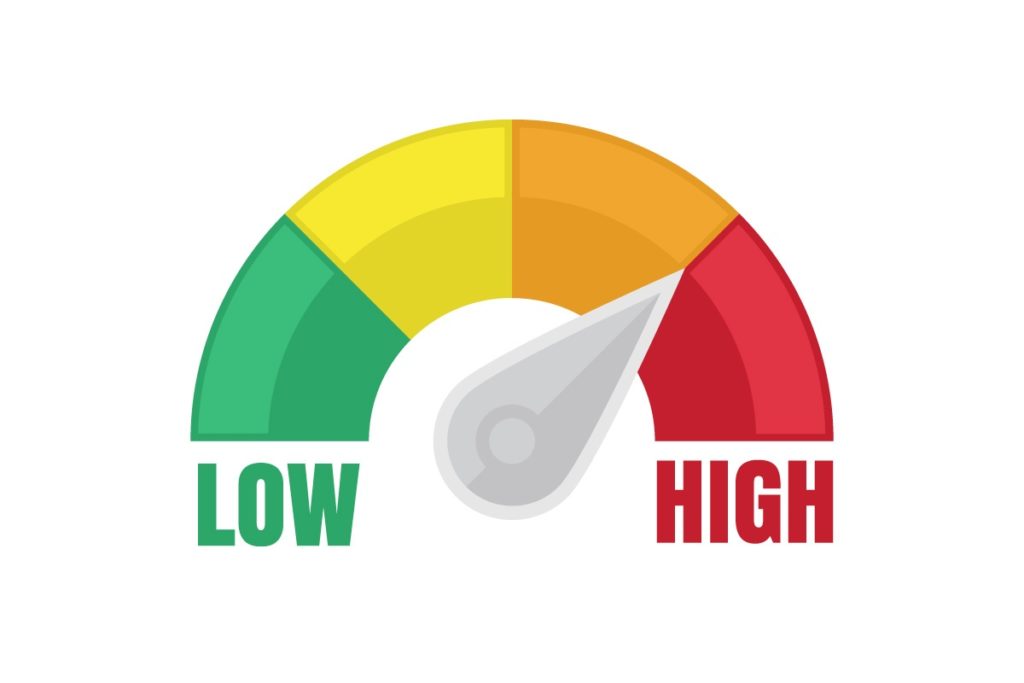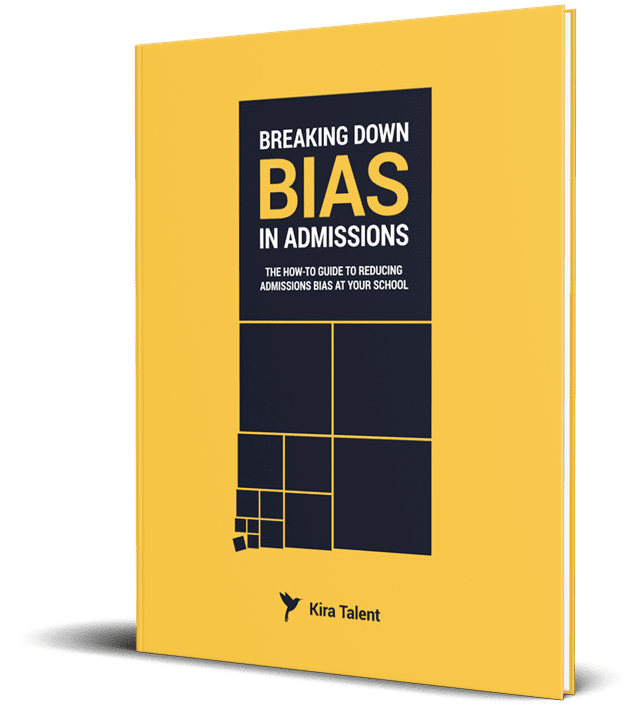Have you ever thought about the mental toll each decision you make in a day costs you?
There’s a study we often share with schools when they’re considering the potential for bias in their admissions process:
In 2011, Jonathan Levav of Stanford and Shai Danziger of Ben-Gurion University found that prisoners in an Israeli prison who appeared before a parole board in the morning received parole about 70 percent of the time, while those who appeared later in the afternoon received parole less than 10 percent of the time.
This study, among many others, provides concrete examples of what social psychologist Roy F. Baumeister has coined ‘decision fatigue.’
Decision fatigue occurs when humans reach their mental capacity in a given day, or period of time, to make quality decisions. Through a series of experiments, Baumeister’s research team found that the more choices subjects had to make, the lower their willpower and self-discipline dropped.
The act of making decisions is actually mentally taxing.
In a 2016 survey of admissions professionals, nearly half (43 percent) reported that members of their team complained of exhaustion during their busiest cycles.
Decision fatigue is a dangerous and expensive problem for admissions committees. First, mental fatigue can lead to a variety of subconscious biases that a more alert and aware person would ignore. And second, it can cost you some of your best and brightest applicants.
The potential for fatigue will depend on the complexity of the process at your school. Every time you need to decide the quality of an applicant’s reference, where an essay or interview response sits on a scale, or how well an applicant displayed motivation or leadership, you’re using up your decision-making capacity.
This problem becomes especially apparent as schools are adapting to a more holistic review of students; Schools are adding more layers of decision-making without accounting for the cognitive toll that this takes on the reviewer.
We asked Dr. Baumeister for indicators to look for when trying to identify if decision fatigue is affecting an admissions team.
The primary indicator is irritability:
“Decisions seem increasingly difficult. Also, little things are more annoying than usual,” he said.
“The depleted decision maker would likely start to rely more on shortcuts. Things that are easy to compare, like test scores, will weigh more heavily in the decision, while the special capacities and unique combination of credentials that define each individual applicant will be less appreciated.”
When the caffeine from your morning coffee, or the endorphins from your morning jog, wear off, and emails and distractions begin to pile up, your decision-making abilities weaken.
Subconscious biases could slip into your decisions, and as Dr. Baumeister pointed out, you may favor shortcuts.

Just like in the case of the prisoners, the prospective students you review when you are tired and overworked have a lower chance of success than the applicants you review at your best and most alert.
- Read more about Baumeister’s research in The New York Times
What can admissions professionals do to reduce decision fatigue?
Baumeister suggests that, if it’s possible, schools should separate the assessment from the final decision on any applicant.
“Our work suggests that making the decision is what produces fatigue. Hence limit the number of decisions that the person has to make in a row,” he said.
“Perhaps try first making a list of the applicant’s strengths and weaknesses, without making a final decision.”
Setting a ‘cap’ on the number of admissions decisions you make in a day may help to force you to walk away before fatigue strikes. Coming back the next day, or after a meal, can also bring a fresh perspective to your decisions. As much as you may want to ‘close the file’ on an applicant before the end of the day, consider if you’re in the right frame of mind to make the decision before doing so.
Baumeister also recommends regular “doses” of food and fun to help admissions committees get through the day at their best.
“A dose of food energy helps restore willpower. Sweet sugary things provide quick lift but also wear off quickly. Healthier food such as protein takes longer to take effect but lasts longer,” he said.
“We found good moods help people perform well despite depletion or fatigue. Circulate some jokes or cartoons, or share funny stories from applications.”
We heard a similar suggestion about keeping the morale up from Marjorie DeGraca, Assistant Dean of Admissions at Haas School of Business’s EMBA and part-time MBA office.
“Before each round of admission deadlines, we have a tradition where each team member guesses the amount of completed applications and the winner receives a coveted crystal ball. It’s a fun way to lighten the air during especially busy times like before a deadline,” she said.
The long-term danger of exhaustion in admissions: Burnout
Unfortunately, the impact of fatigue extends far beyond final admissions decisions. The quality your admissions decisions, alone, is not the only reason you need to be looking at exhaustion and fatigue on your team: You need to avoid burnout.
Burnout can affect you and your team in several ways. Not only is burnout expensive, but it also hurts your team members and your team’s morale.
The cost of employees missing work due to workplace stress is in the hundreds of billions of dollars, just in the U.S. alone. Experiencing workplace burnout can aggravate mental health issues, lead to long periods of sedentary activity, and put pressure on life at home if the individual experiencing burnout continues to work into their evenings and weekends.
Frustration, irritability, and anger towards management can cause people to gossip, complain, and potentially change jobs. If a burnt out team member quits, not only do you need to replace that person, but the rest of your team needs to work shorthanded to fill the gap, further perpetuating the cycle of unhappiness and exhaustion.

Are you at risk for or experiencing burnout?
Access these resources:
- Psychology Today: The Tell-Tale Signs of Burnout ... Do You Have Them?
- Helpguide.org: Burnout Prevention and Recovery: Signs, Symptoms, and Coping Strategies for Mental Exhaustion
- Mayo Clinic: What's the best way to handle job burnout?
- Kira Talent: Five Ways To Make Admissions Interview Season Smoother
If decision fatigue or burnout is affecting your team, speak with your colleagues or raise it at your next meeting. Share this article. Set a calendar alert to take lunch and invite your team.
Most importantly, get the conversation started so you can begin to make changes that will be better for your health and the health of your next cohort.
This article is part of an ongoing project to understand and help prevent bias in the admissions process. If you’d like to read more, download the eBook “Breaking Down Bias in Admissions.”



